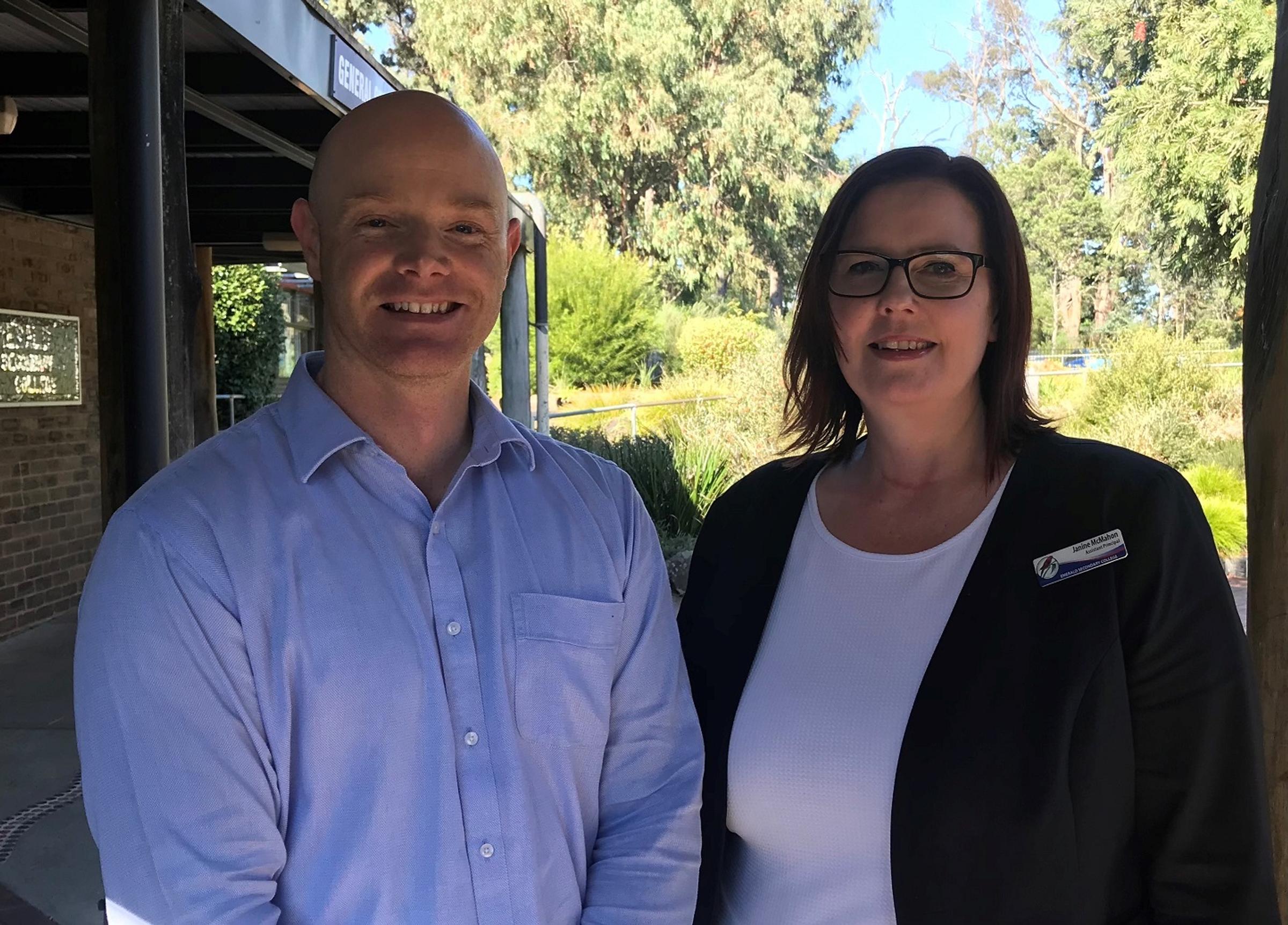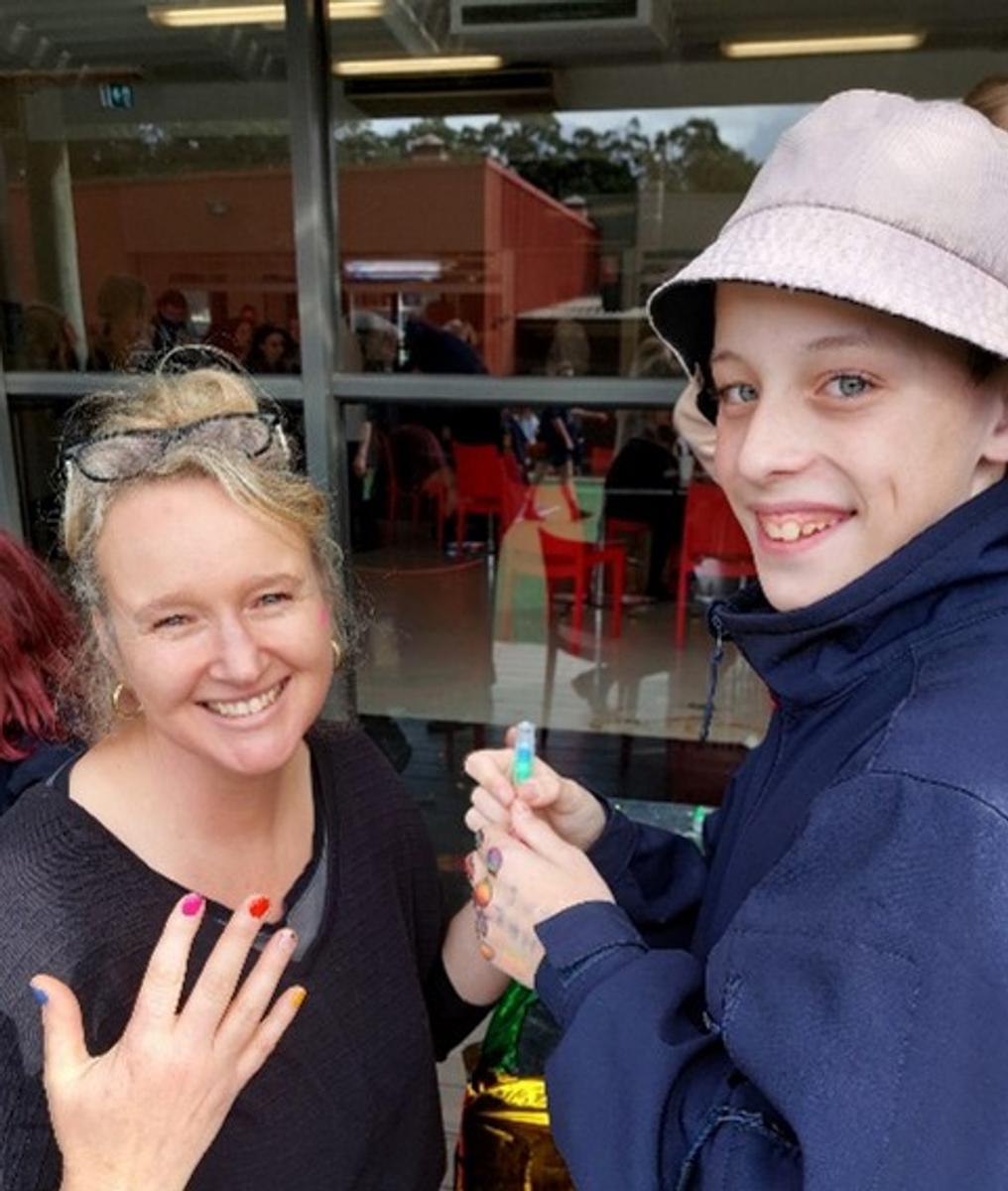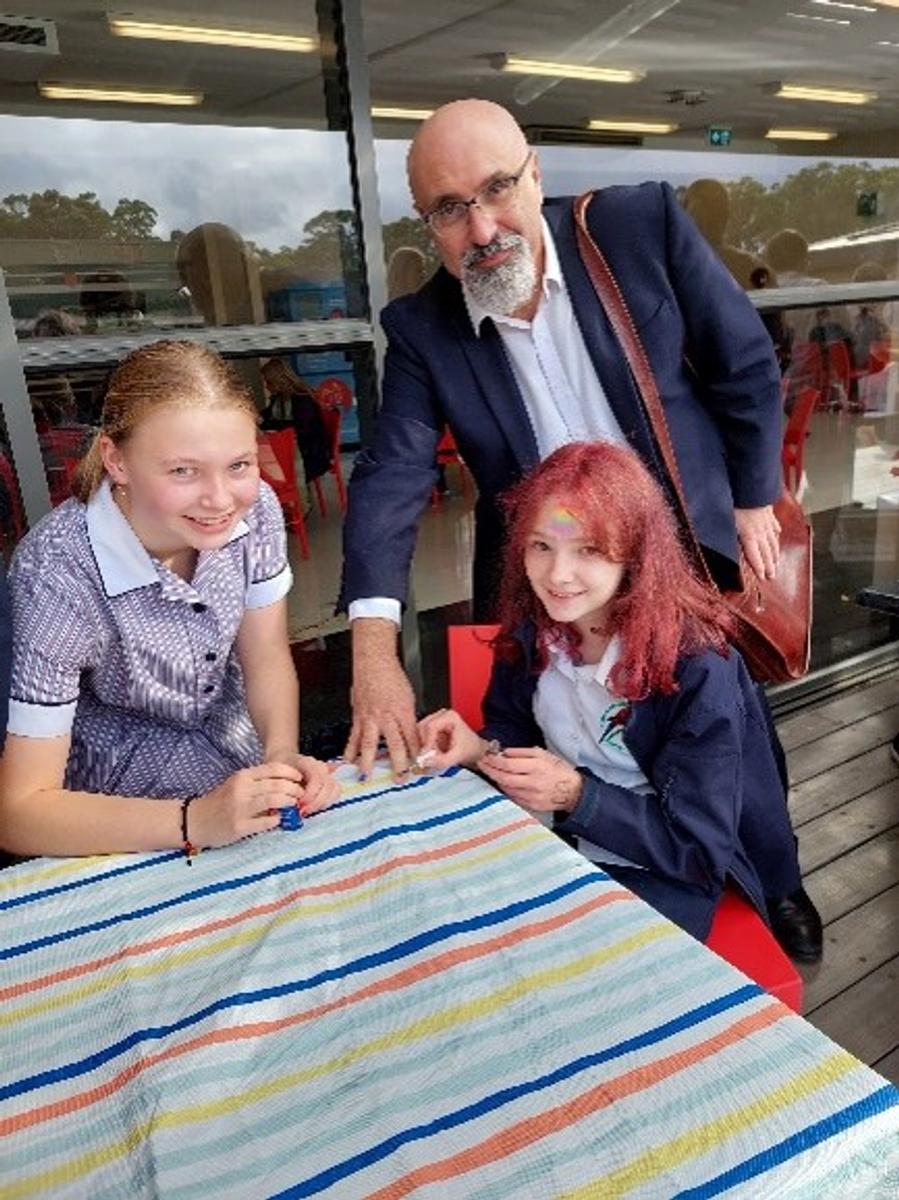Assistant Principals' Reports

Focus on Mathematics
Based from data received through DET at the Outer Eastern network level, Emerald Secondary College’s results showed that our college recorded the SECOND HIGHEST growth achievement data in Numeracy – a spectacular result…not only did our students show growth in the top two bands, but there was considerable growth, supporting and lifting our students in the lower bands.
Recently the Teaching and Learning program in maths at our College has changed to allow for shorter units of work to increase interest and maintain student engagement in their learning. These units typically last three to four weeks.
Currently units that the students are working on are:
- Year 7 students are looking at real number, which involves activities involving fractions.
- Year 8 students are about to jump into concepts of probability and chance.
- Year 9 students are focusing on patterns and algebra, linear graphs and their applications to the real world.
- Year 10 students are consolidating skills that will lead into senior mathematics pathways and are also studying non-linear graphs.
To promote numeracy throughout the school community we are posing the following family problem solving challenge:
The first 5 correct solutions that are sent through to the following email address will be awarded a small prize:
emerald.SC@education.vic.gov.au
Solutions will be provided in the next College newsletter.
Janine McMahon - Assistant Principal
College Student Management – Policies and Processes
Schools are a reflection of society and community and as such we experience occasions where students push the boundaries in terms of their behaviour, and for a variety of reasons struggle to meet behavioural expectations. As a school community, rather than focus on the behaviours demonstrated as a reflection of our College, it’s important to focus on our response.
Working with students to re-engage them where necessary, we make every effort to work toward mutually desired outcomes that both fit within our College policies and take the needs of our students into consideration. We balance punitive outcomes with plans to support students, find suitable wellbeing and academic supports, and investigate appropriate pathways and services. The positive, safe and orderly teaching and learning environment of our staff and our students is our paramount concern.
This involves a partnership with our parent and carer community – we strive to work productively, respectfully and with the common goal being what is best for all of our students.
Sometimes it’s the seemingly ‘little’ things that students do have control over that cause the most ‘angst’ and take up the most time. Bigger issues can be more easily and consistently addressed when these kinds of issues become a non-issue. Key areas of our policies that I wish to highlight at this time include:
- Attendance – regular attendance at school is pivotal to student engagement, positive mental health and academic growth
- Lateness – lateness to class, particularly when this forms a pattern, interrupts the teaching and learning of all students.
- Being out of class – There are clear processes here. Students know and understand which materials and resources they need for each of their subjects and need to come prepared. Water bottles are permitted in class. Should a student need to leave the classroom, permission and a pass must be obtained from the teacher
- Uniform and piercings – Policies regarding uniform and other policies are also clear. Regardless of how students feel about the policy, we are a uniformed school and our policies and associated consequences reflect this.
- Responding to consequences – It should go without saying that at times when a consequence needs to be issued, if this consequence is not adhered to (e.g., a lunchtime detention) that the situation will be escalated (e.g., to an after-school detention). The issue then becomes a refusal to follow instructions and unwillingness to take responsibility for actions, rather than the initial breach of policy.
- Respectful Language – The College is a place of learning and a workplace for our staff. As such profanity, overly-familiar, disrespectful and offensive language will not be tolerated – toward other students (even if said ‘in jest’) or toward staff.
As always we appreciate your support in these regards. Policies, including our Student Wellbeing and Engagement Policy, are available on the College website.
Celebrating Success
In every lesson in every day, students are demonstrating outstanding skills and knowledge and submitting exemplar pieces of work. Staff have been invited and encouraged to send students whose work excites them, who demonstrate a high level of effort, and/or of whose work they are proud of to the Principal’s office to share their work. It is a highlight to be able to hear students talk about their academic achievements and for these to be recognised.
Lily (Year 7) and her Art Analysis on ‘My Country’
MYLNS
Middle Years Literacy Numeracy Strategy
We are pleased to report that MYLNS Funding will continue in 2023, though we do not yet know how this will look for our College. This program is an integral part of our response in supporting student academic achievement and growth and we are excited to learn that we can continue delivery of our successful strategy.
IDAHOBIT
Today our Wellbeing Department, with the help and support of several students, celebrated IDAHOBIT (International Day Against Homophobia, Biphobia, Intersexism and Transphobia) at lunchtime. Students and staff were encouraged to wear colourful socks and have rainbow colours painted on their fingernails, colourful hair chalk and rainbow face paint amidst music and +*rainbow cupcakes. It was great to see so many students and staff embrace the celebrations.
Tanja Korsten - Acting Assistant Principal




